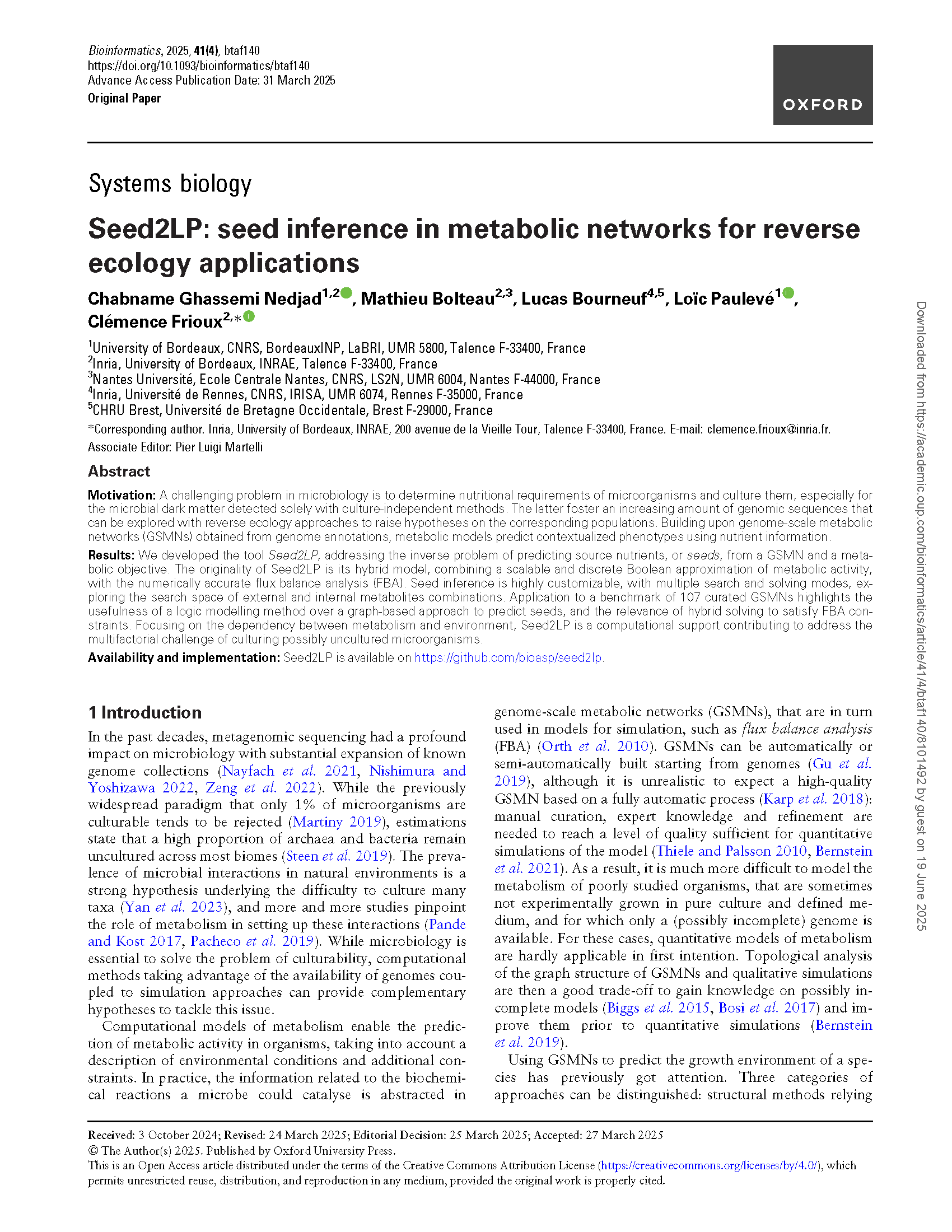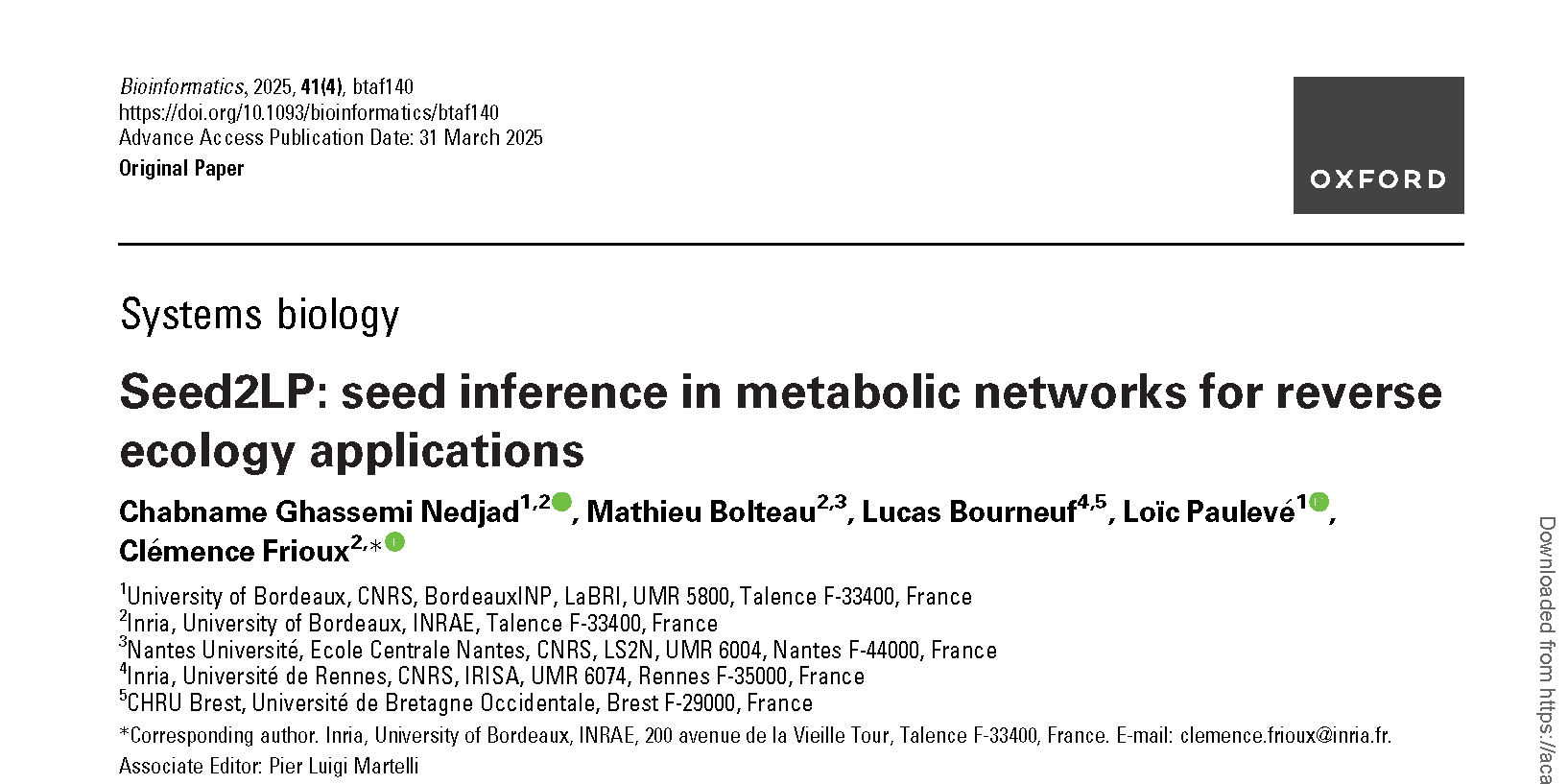
On April 4, 2025, the Cultissimo focus project published an article entitled “Seed2LP: Seed Inference in Metabolic Networks for Reverse Ecology Applications” in the journal Bioinformatics.
The Cultissimo project aims to integrate and develop a set of techniques for the high-throughput isolation, identification, and characterization of anaerobic microorganisms associated with human health, in order to map fecal and intestinal microbiotas.
This study proposes a computational approach to predicting the nutrients required for a microorganism’s metabolism. By combining high-throughput experimental and modeling approaches, the authors hope to help define culture media suitable for microorganisms that are currently uncultivable.
From the information encoded in the genomes of multiple microorganisms, bioinformatics tools are able to retrieve from databases the biochemical reactions likely to take place in cells.
All of these reactions, several thousand, form a network from which simulations can be performed to determine what a cell is capable of doing when it finds itself in a given nutritional environment.
In this study, the authors posed the inverse problem: what nutritional environment should be used for a cell to multiply? The work published here represents a method for inferring this environment using a software program: Seed2LP. By focusing on the dependence between metabolism and the environment, Seed2LP is a computational tool that helps address the multifactorial challenge of cultivating currently uncultivated microorganisms.
- Chabname Ghassemi Nedjad, PLEIADE – INRAE, LaBRI
- Mathieu Bolteau, LS2N – Nantes University
- Lucas Bourneuf, Brest Regional University Hospital Center
- Loïc Paulevé, LaBRI
- Clémence Frioux, PLEIADE – INRAE

